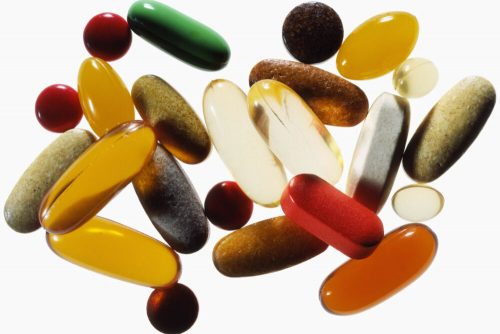
Calcium
This is becoming a multipurpose mineral. Beyond keeping your bones strong, calcium plays a critical
role in maintaining healthy blood pressure. There’s also growing evidence that it can help prevent colon cancer.
Calcium may even help you lose weight. In several small studies, dieters who cut calories while increasing their dairy servings to three a day dropped more pounds than those who simply cut calories. But note: In this case, calcium pills are not as effective as dairy foods.
How much you need: Up to age 50, 1,000 milligrams (mg) a day; thereafter, 1,200 mg. If you don’t get at least three servings of dairy a day, fill the gap with a supplement.
Vitamin A
This vitamin comes in many forms, including retinol and beta-carotene. Retinol, the most potent type, is found in liver, some dairy products, multivitamins and fortified foods. Researchers have known for decades that megadoses of retinol can build up in the body and become toxic; even more moderate doses can cause birth defects. That’s why a safe upper limit (10,000 IU daily) was recommended several years ago.
But now it seems that even 10,000 IU may be too high. Large intakes of retinol have been linked to weaker bones, with the risk starting at about 5,000 IU. If you take a vitamin and eat fortified food, you could be getting way too much vitamin A.
How much you need: The recommended daily amount of vitamin A (also lowered) is 2,333 IU for women, 3,000 IU for men. But you don’t need a special supplement. Look for a multi that contains no more than 5,000 IU, with at least 25 percent of that coming from beta-carotene, advises Diane Feskanich, Sc.D., of Harvard Medical School. Check food labels: They don’t always tell you the source of the vitamin A, but you should avoid too much retinol, which might be listed as vitamin A acetate or vitamin A palmitate.
Vitamin D
The sunshine vitamin plays a key role in growing strong bones and keeping them that way. Now, vitamin D is gaining attention for helping to head off many medical problems — high blood pressure, heart disease and colon, breast and ovarian cancers. “There’s nothing else you can take that has this ability to prevent cancer,” notes Cedric Garland, Dr.P.H., of the University of California at San Diego Moores Cancer Center.
How much you need: The official recommendation ranges from 200 international units (IU) a day to 600 IU, depending on your age. But these numbers were set in 1997 and are based on even earlier research. “Science has advanced a lot since then,” says Vieth Reinhold, Ph.D., head of the Bone and Mineral Laboratory at Mount Sinai Hospital in Ontario. Many experts now advise that all adults consume about 1,000 IU of vitamin D daily, whether from food (a cup of milk contains about 100 IU; fatty types of fish are also a good source) or from pills.




